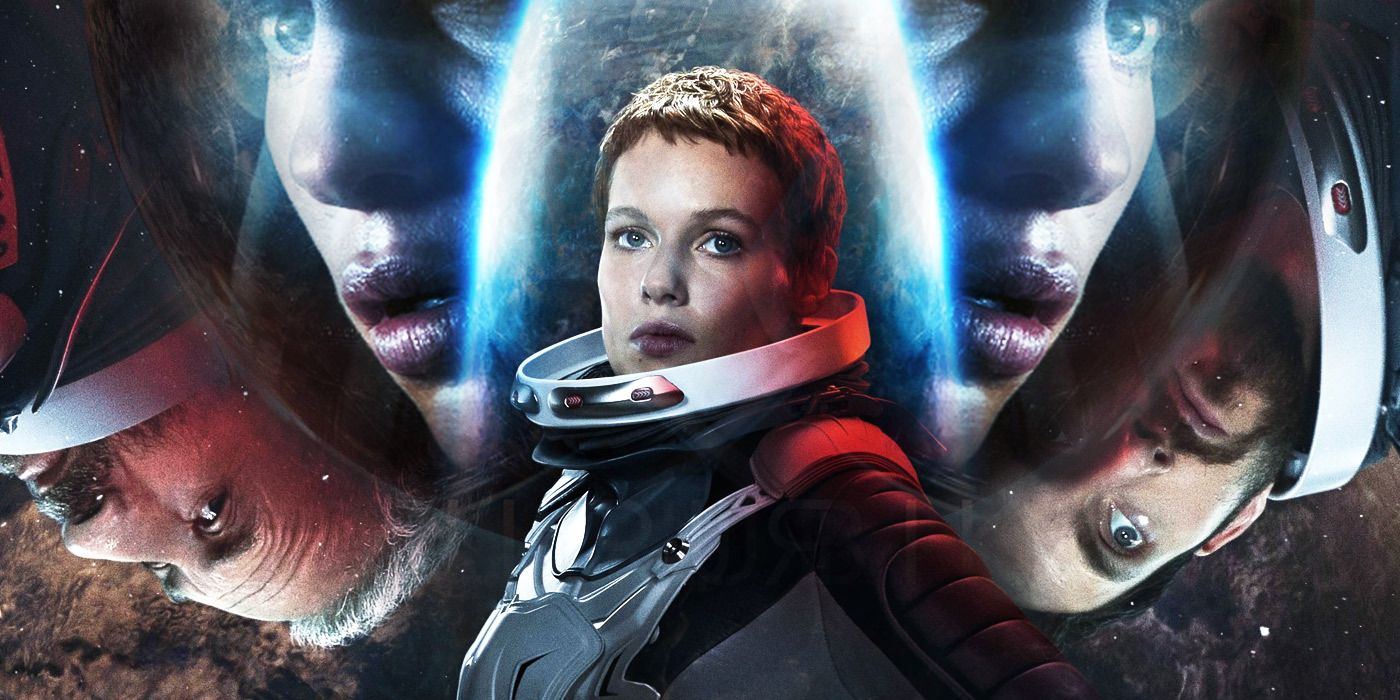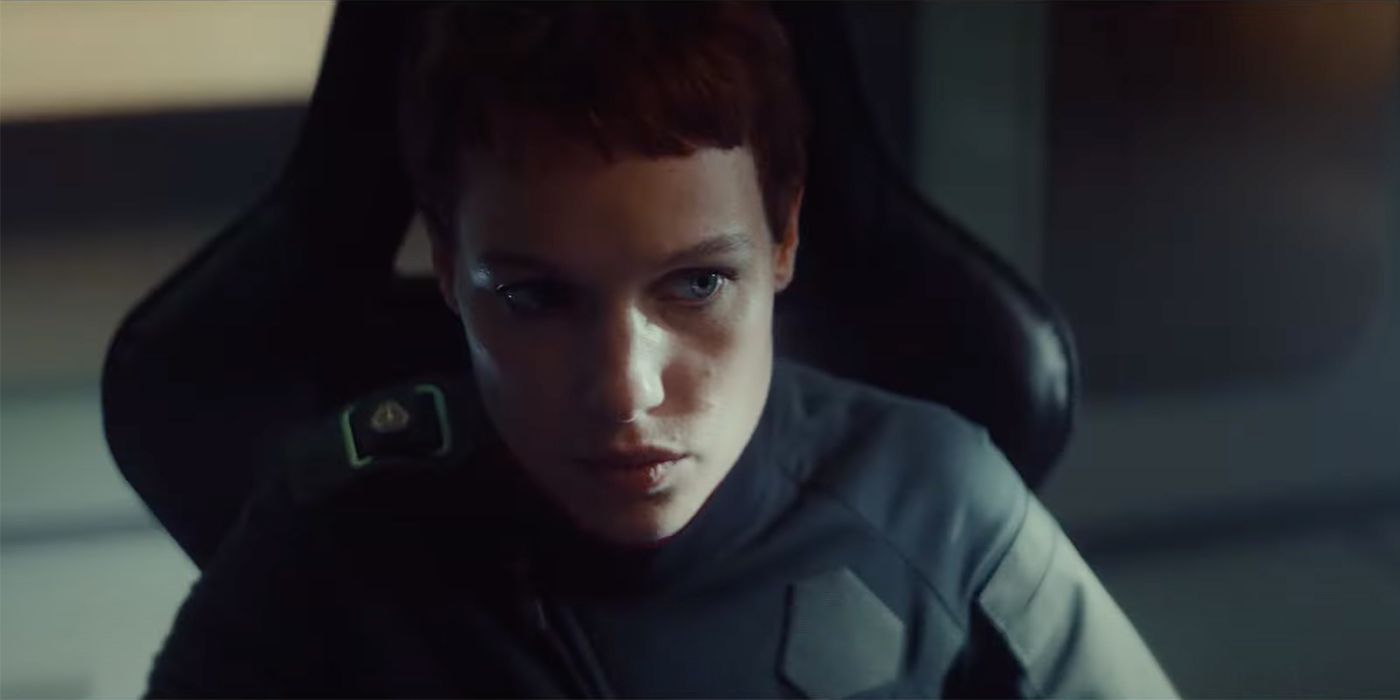One of my favorite aspects of the vast genre that is science fiction is when films take a bunch of people into space and basically just leave them up there. Whether it takes the form of a riveting historical drama like Apollo 13, a vibrant journey to the sun in Sunshine, or a horror masterpiece like Alien, there is a lot to love in this long tradition of stories told in the confines of space vessels floating in the void. Though it may not seem like it, there is actually a lot of narrative potential to be found in setting your film almost entirely within an enclosed space. It creates both a sense of claustrophobia and tension to have constant death looming just outside, pushing the story into interesting places as you see people grapple with their predicament. As control and order begin to break down with limited means of escape, these films can reveal deeper nuances to the various characters just trying to survive.
The new science fiction film Rubikon carries on this tradition with a bit of its own twist that proves to be intriguing in theory though not in execution. It is centered on three astronauts who find themselves essentially trapped on a unique space station that has panels of some sort of algae throughout it that seems to enable them to survive. The only problem is that the Earth below them has fallen into destruction after already being on its last legs. The film then becomes a fraught morality play of sorts, grappling with the ethical conundrum of whether they should risk a trip back home for survivors or simply spend the rest of their lives alone in the cold darkness of space. Is that a life even worth living? Is dying amongst others better than living completely alone? These are all ideas that the film dances around as characters begin to challenge each other about what they should all do. Unfortunately, even as the claustrophobia is the point of the story, the narrow focus ends up being its own worst enemy.
What makes many of even the most confined science fiction stories work is that we feel the scope of the world outside even if we don’t always see it. Rubikon does this initially as Julia Franz Richter’s Hannah makes calls down to the planet below, grounding her character in the emotional connection she has to those that may still be alive back home. The only issue is that the film soon begins to shift away from the more compelling core of the story into being about the particulars of the plot that prevent them from returning. It has to walk a fine line between overly constraining the characters while also leaving them with limited options, something it struggles to fully navigate. Every time we see them try to make a decision or advance the story forward, there ends up being something that prevents them. It leaves it all feeling stagnant and superficial when it needn’t be. It is as if the film is always writing itself out of more deeply engaging with the ethical question it initially seemed interested in.
The crushing isolation that begins to take a toll on the characters still remains the best part as we see how devastating each setback can be. Unfortunately, it takes a while to get to this more meaty part of the story as much of the film proceeds with a sluggish and directionless sense of mundanity. The promise of the story was built around all these people having to make an impossible decision with no perfect outcome. By the time we do arrive at this turning point after a litany of contrivances put it off for as long as possible, it lacks any sense of stakes as it is clear the film is running out of narrative runway. It is less a question of predictability and more one built around pacing. While we didn’t know how exactly all the pieces would come together, the painfully slow way they all end up falling into place means there isn’t anything thrilling to grasp onto. The choice facing them down remains the same, making any minor twists here and there feel like it is just rearranging deck chairs.
Every moment you feel like it is going somewhere new that will push things forward, it all ends up slowing way down and getting stuck in the least interesting parts of its own setting once more. You can only get so engaged with seeing the same rooms and circular conversations happen on repeat before wondering when the story is actually going to kick in. Rubikon had a lot of promise in its premise and could have tapped into the full terror in its confined story. Instead, it all ends up feeling trite and as though it is captive to itself, needing to find reason on top of reason to keep the characters in one place for the nearly two-hour runtime. As it navigates the restrictions it put in place for itself, it shows that even the most fascinating of science fiction ideas still require a more compelling execution to keep us immersed.
This is because the aforementioned works that did this well all were driving at something more. Even if it was something as simple as “save humanity” or “survive until tomorrow,” there was something instilling the story with greater tension. Rubikon mostly sputters along without any of this, leaving us uncertain about why any of this matters on either a micro or macro scale. The film provides brief flashes of chaos that burst through the uneventful malaise, though this can’t keep us on board for very long when the situation largely remains unchanged. It is a story that feels like a perpetual kicking of the can down the road, meandering and uncertain as it bounces off the walls without anywhere to go. It misses out on the chance to capitalize on a strong hook by letting things drag on for far too long without any sense of purpose. As a result, it exposes how not every claustrophobic sci-fi film works when told in such a confined setting. Instead of expanding where it can, Rubikon gets too caught up in its limitations and quickly reaches a narrative ceiling. This reduces it to being more like a bottle episode of television as opposed to a comprehensively told feature film. The pieces were all there, it just lacked the ambition and creativity to set them free.


